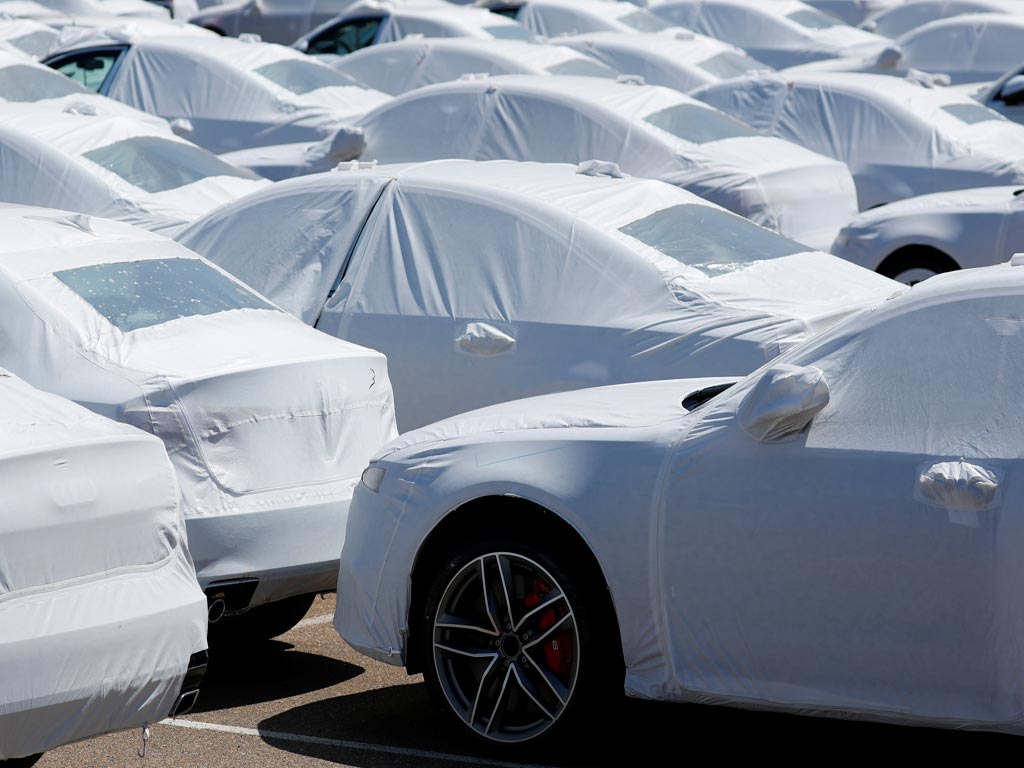China July vehicle sales down 4.0pc yr/yr

BEIJING: China's automobile sales fell 4.0 percent in July from a year earlier to 1.89 million vehicles, an industry association said on Friday, as US carmakers lost market share amid rising concern over the potential fallout of a Sino-US trade spat.
Officials from the China Association of Automobile Manufacturers (CAAM) said, however, the decline was caused by "product issues" at US automakers and had less to do with the trade tensions.
Ford, for example, has said they expect a tough sales year this year because of a lack of new or redesigned products.
CAAM said overall sales for the first seven months of the year totalled 16 million vehicles, up 4.3 percent from the same period a year prior.
Last month's sales drop followed increases of 4.8 percent in June and 9.6 percent in May.
Auto sales in China, the world's biggest vehicle market, had been rebounding steadily since February when sales volume fell 11.1 percent.
The sales decrease in July came as escalating trade tensions between China and the United States have prompted worries over what they could mean for foreign automakers' prospects in China's car industry.
Xu Haidong, an assistant general secretary of the auto association, said, "there was no particular relationship between the sales volume decline (in July) and the China-US trade tension", but added that it could impact customer confidence in the market later this year.
"A main reason for the decline was their products," the CAAM official said, apparently referring to the sales declines Ford has seen in recent months, among other situations affecting US automakers.
Ford on Friday said its sales in China fell 32 percent in July from a year earlier. For January-July, Ford's China sales dropped 26 percent versus the same period a year earlier.
The industry association forecasts overall market growth of 3 percent this year, in line with last year but significantly below the 13.7 percent gain of 2016.
On Wednesday, Chinese authorities said they would impose additional tariffs of 25 percent on $16 billion worth of US imports from steel products to autos, in retaliation to news that the United States would begin collecting 25 percent extra in tariffs on $16 billion of Chinese goods on Aug. 23.
CAAM had in June said that they were concerned over potential "pressures" in the second half of the year, without elaborating.
China raised tariff rates on US made vehicles in July, forcing electric carmaker Tesla Inc, BMW and Daimler AG's Mercedes-Benz to raise prices on certain cars.
BMW, for example, has raised the prices of two US-made crossover sport-utility vehicles by 4 percent to 7 percent. The rates of increase suggest that BMW is willing to absorb much of the higher costs stemming from bringing the SUVs - the X5 and the X6 -- to China from its factory in South Carolina, underscoring the fierce competition among luxury car brands in China.
Vehicles imported by Daimler and Ford Motor Co from the United States have also in recent months faced hold-ups at Chinese ports.
On Thursday, Daimler said that Mercedes-Benz sports utility vehicles built in Tuscaloosa, Alabama, were being checked for potential problems by Shanghai customs authorities.





















Comments
Comments are closed.